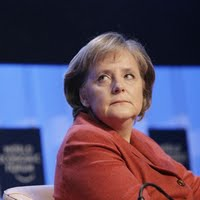On May 9, voters in the German state of North Rhine Westphalia (NRW) take to the polls to decide what in the past has typically been a quiet, local parliamentary election with little impact on the national agenda. This year, however, is different.
German Chancellor Angela Merkel and her center-right Christian Democratic Union-Free Democratic Party coalition government are in danger of losing the Bundestag, the upper house of the German government, in the elections. Plagued by infighting and the inability to agree on a comprehensive agenda, the coalition has stumbled through a number of domestic missteps, from an unpopular tax plan to social service cuts. Now voters in North Rhine Westphalia can put the Bundestag into the opposition's hands, making it difficult for Merkel to further enact her agenda.
At first glance, the election has little to do with foreign policy. However, on closer inspection, a loss for Merkel could have a profound impact on Germany's foreign policy agenda in three key areas. It also could signal the beginning of a new German position within the European Union and beyond, one in which German interests, not European ones, are the driving force behind Germany's foreign policy.

